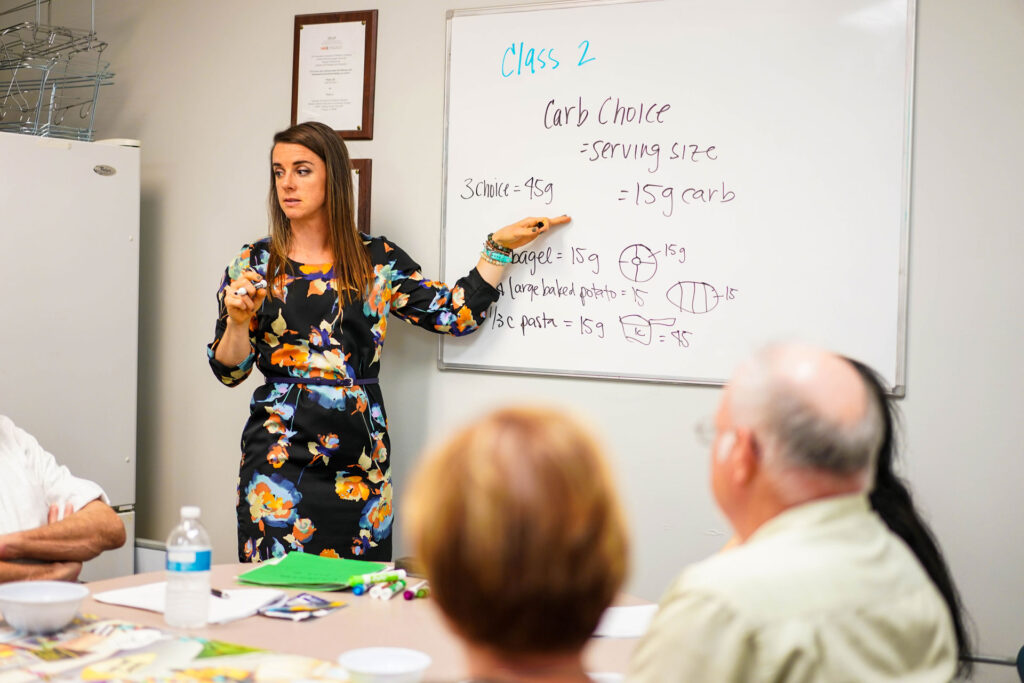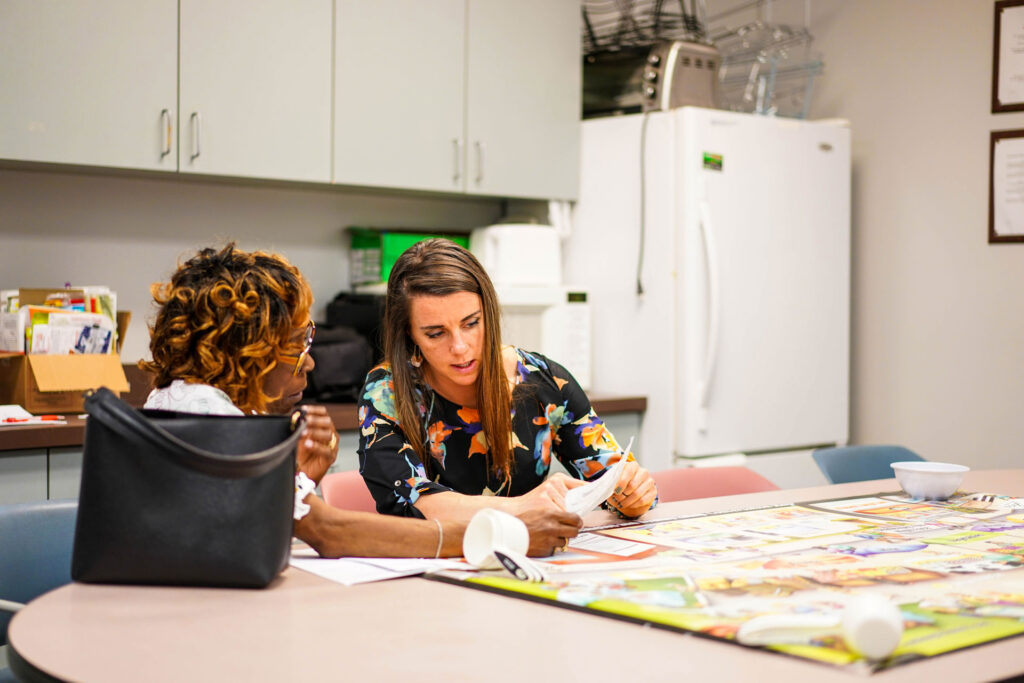Diabetes Management Course in Philadelphia, PA
An AADE Accredited Program
Did you know that only 6% of people who have diabetes ever receive an education? You should be getting three hours or more of education on your diabetes per year to stay up-to-date on most current trends and research.
About our Diabetes Program
Diabetes classes are on the first three Wednesdays of the month at 3-6 pm or the first three Thursdays from 5-8 pm. Virtual Diabetes classes are offered during COVID-19 quarantine months. The classes are shortened to 1.5 hours for 6 weeks and class participants meet on zoom calls from the safety of their home.
Call for Details (215) 440-8681. Refer your friends and family!
Class Structure
Class 1: Learn what’s really going on with your body and how to equip yourself with the tools to track changes.
Class 2: Heart-healthy eating and exercise make a major difference in overall health for patients with diabetes.
Class 3: Advanced blood glucose management – pattern finding, avoiding complications, and standards of care moving forward.
What to Bring to Class
- Your blood glucose meter (if you have one)A support person (encouraged)
- A list of your medications.
- Snacks/Water – class can last 3 hours
- A smile – our class will be fun, interactive, and fast-paced.
Appointment Options
- Group Classes: Three 3-hour sessions
- WEDNESDAY, 3 – 6 PM
- THURSDAY, 5-8 PM
- Individual Assessment: 1-hour session, any day of the week with various time options.
- Weight loss
- Diabetes
- Prediabetes
- Heart Disease
- Kidney Issues
- GI Issues
About Insurance Coverage
- Private Insurance: 3-10 visits per year and prediabetes is well covered.
- Medicare: 3-4 visits per year. One class per lifetime. Prediabetes is not covered.
- Self Pay: $75 per hour
Advanced Learning Opportunities
Continuous Glucose Monitoring (CGM) is quickly becoming the future of diabetes management. Unlike fingersticks, CGM fills in the missing information by testing >300x per day for a continuous graph of BG range throughout a 14 day period. It can be a very fast method for specific insight into your diabetes problems and personalized solutions.
Ask for info on rental or insurance coverage. The Libre Professional sensor is most often used in our clinic. The patient has a sensor placed at the appointment, wearing on the back of the arm for 14 days while taking timed notes on intake. After the last day, the patient removes the sensor and turns it back into the office for analysis. Analysis appointments can only be made with Sarah Burbee, RD, LDN, CDE. The appointments last 1 hour.
Recommended Use – CGM
Prediabetes – Use the CGM for a fast easy assessment to find the most significant blood glucose rise throughout the week.
Type 2 Diabetes – Recommended 1-3 times per year in order to properly adjust medications and learn how lifestyle affects your blood glucose.
Type 1 Diabetes – Discuss owning the device for continuous use throughout the year. Allows for safer adjustment of mealtime insulin.
Meet the Educator
Sarah Burbee, RD, LDN, CDE
Working at NSIM since 2014
Teaching Style. Sarah is a dietitian/diabetes educator who is passionate about the subject. Her style is firm but fun. She believes education can be equally effective as taking medication. Health at ANY size. This is your body and your life. Sarah works to help each patient feel empowered to feel and be healthy. It doesn’t matter where you’re starting – the approach is about improving. Lesson Options: There are many ways to learn nutrition and diabetes management. The approach should be personalized to you. Expect a variety of teaching methods.
Myths and Facts About Diabetes
- Diabetes goes away. MYTH! A diagnosis most people with diabetes have lost 40% of their beta cells (the type of cell that makes insulin). Blood glucose can be controlled, but beta cells never return to normal.
- You can still eat dessert. FACT! Many people think diabetes means they have to give up everything they love eating. That’s not true. If you learn how to count carbs, you can budget for dessert whenever you want it.
- Gaining weight causes diabetes.
MYTH! While weight gain can cause the body to be less sensitive to insulin, it does not mean this is the cause. Many people of all different body types could be at risk. Lack of activity, advanced age, and family heredity play major roles in who gets diagnoses. - Oatmeal/Cereal is the best.
MYTH! While we agree breakfast is very important, one bowl of oatmeal is not sufficient. Cereal and Oatmeal with fruit can be the highest rise of your entire week. Try having it as a side dish to eggs and vegetables instead of the main entrée.





